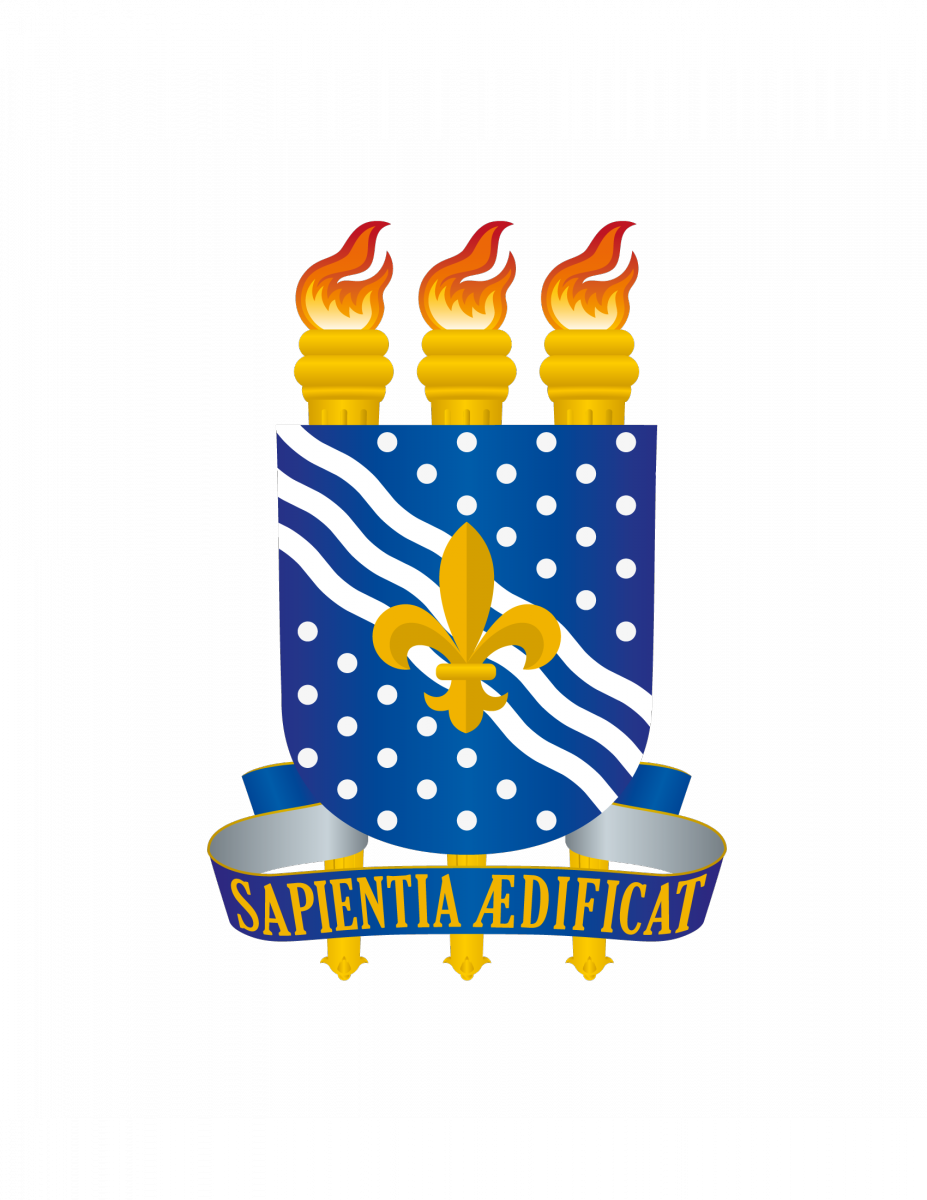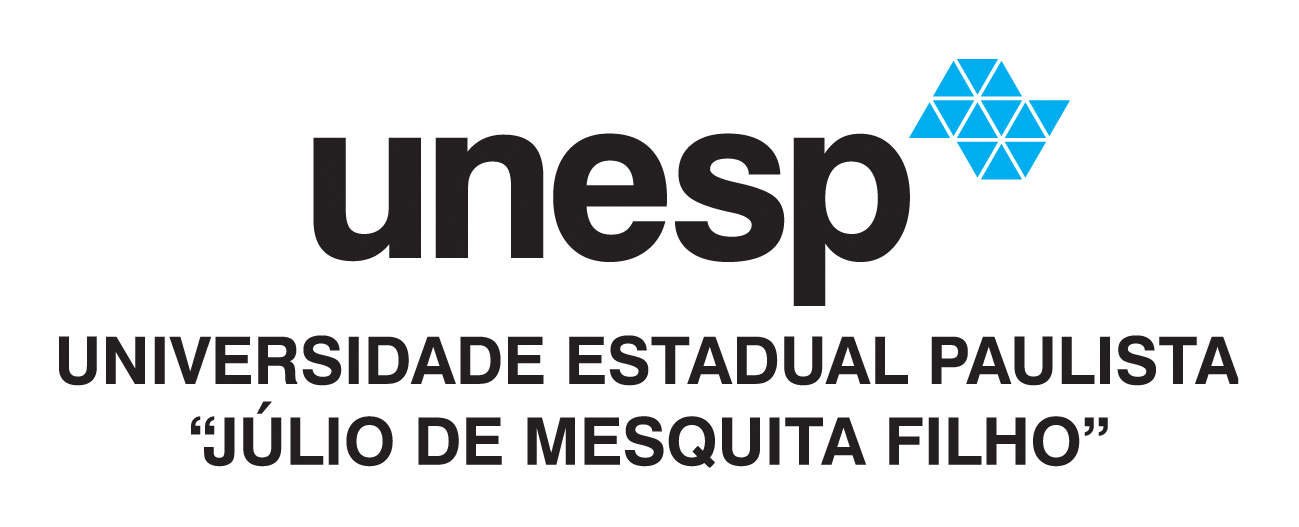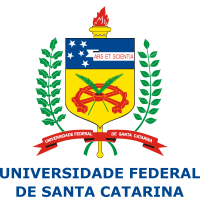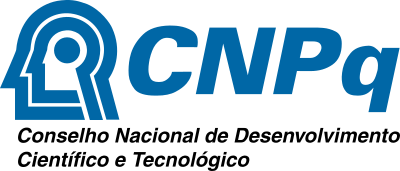Information, Data and Technology
Guilherme Ataíde Dias
Federal University of Paraíba (UFPB) | guilhermeataide@ccsa.ufpb.br | https://orcid.org/0000-0001-6576-0017 | https://lattes.cnpq.br/9553707435669429
Undergraduate in Computer Science from the Federal University of Paraíba UFPB Campus II (1990), Bachelor in Law by the University Center of João Pessoa UNIPE (2010), Master in Organization & Management by Central Connecticut State University? CCSU (1995), PhD in Information Science (Communication Sciences) at the University of São Paulo? USP (2003) and Post-Doctor by UNESP (2011). He is currently Associate Professor III at the Federal University of Paraíba, where he holds a degree in Information Science. He is involved with Post-Graduation through the Post-Graduate Program in Information Science and Postgraduate Program in Administration, both of UFPB. Has research interest in the following themes: Knowledge Representation; Information Architecture; Information security; Information and Communication Technologies; Health Information; Social networks; Free software; Law, Ethics and Intellectual Property in Cyberspace; Scientific Data Management; Legal Information; He is currently Research Productivity Scholar (PQ) at CNPq.
Moisés Lima Dutra
Federal University of Santa Catarina (UFSC) | moises.dutra@ufsc.br | https://orcid.org/0000-0003-1000-5553 | https://lattes.cnpq.br/1973469817655034
Professor, Federal University of Santa Catarina, Department of Information Science. PhD in Computing from the University of Lyon 1, France (2009). Master in Electrical Engineering, subarea Automação e Sistemas (2005) and Bachelor in Computing (1998) from the Federal University of Santa Catarina. His current lines of research are related to Applied Artificial Intelligence (Machine Learning, Deep Learning, Semantic Web, Linked Data) and Data Science (Big Data, IoT). It is linked to the research group ITI-RG (Intelligence, Technology and Information - Research Group).
Fábio Mosso Moreira
São Paulo State University (UNESP) | fabio.moreira@unesp.br | https://orcid.org/0000-0002-9582-4218 | https://lattes.cnpq.br/1614493890723021
Undergraduate degree in Business Administration from the Faculty of Sciences and Engineering (UNESP / Tupã). Master degree in Information Science - (UNESP / Marília). PhD student in the Graduate Program in Information Science (UNESP / Marília). Member of the Research Group - GPNTI (UNESP / Marília) and GPTAD (UNESP / Tupã). Collaborator of the Project Digital Skills for Family Farming (CoDAF). Content editor of the Electronic Journal Digital Skills for Family Farming (RECoDAF). Professional Technical Skill in Informatics from ETEC Massuyuki Kawano - Centro Paula Souza de Tupã. Professional experience in the ERP Information Systems for Logistics Operations. Works with research in Information Science, studying the use of digital resources for access to government data of Public Policies in the context of the small farmer.
Fernando de Assis Rodrigues
Federal University of Pará (UFPA) | fernando@rodrigues.pro.br | https://orcid.org/0000-0001-9634-1202 | https://lattes.cnpq.br/5556499513805582
Professor at Federal University of Pará. Ph.D. and M.S. in Information Science, Post-bachelor in Internet Systems and Bachelor of Science in Information Systems. Most of his experience is based on works developed as a Full Stack Developer and Database administrator, especially with Python, Java and PHP programming languages, as well as MySQL, MariaDB, SQLite3 and PostgreSQL databases. Also, he lectured classes related to the context of Computer Science to undergraduate and graduate students at UNESP. Currently, He workd as a postdoc researcher at UNESP labs, working in data studies.
Ricardo César Gonçalves Sant'Ana
São Paulo State University (UNESP) | ricardo.santana@unesp.br | https://orcid.org/0000-0003-1387-4519 | https://lattes.cnpq.br/1022660730972320
Associate Professor at the Paulista State University - UNESP, Faculty of Sciences and Engineering - FCE, Campus de Tupã, on an exclusive dedication, where he is Chairman of the Monitoring and Evaluation Committee of the Graduate Courses - CAACG, Local Coordinator of the Center for Studies and Pedagogical Practices - CENEPP and Local Ombudsman. Professor of the Post-Graduate Program in Information Science of the Paulista State University, Marília Campus. Graduated in Mathematics and Pedagogy, Master in Information Science (2002), Doctorate in Information Science (2008) and Freelance in Management Information Systems by UNESP (2017). He has specialized in Object Orientation (1996) and Management of Information Systems (1998). Ad hoc advisor of periodicals and development agencies. Member of the Research Group - New Technologies in Information GPNTI-UNESP. Has experience in the area of ??Computer Science, currently conducts research focused on: information science and information technology, investigating issues related to the Data Life Cycle, Transparency and Information Flow in Productive Chains. He worked as a professor at Faccat Faculdade de Ciências Contábeis e Administração de Tupã, where he coordinated a course of Administration with Qualification in Systems Analysis for ten years and the course of Licenciatura in Computing. He worked in the private sector as a consultant, integrator and researcher of new information technologies from 1988 to 2004.
Organizators
Guilherme Ataíde Dias
Federal University of Paraíba (UFPB) | guilhermeataide@ccsa.ufpb.br | https://orcid.org/0000-0001-6576-0017 | https://lattes.cnpq.br/9553707435669429
Undergraduate in Computer Science from the Federal University of Paraíba UFPB Campus II (1990), Bachelor in Law by the University Center of João Pessoa UNIPE (2010), Master in Organization & Management by Central Connecticut State University? CCSU (1995), PhD in Information Science (Communication Sciences) at the University of São Paulo? USP (2003) and Post-Doctor by UNESP (2011). He is currently Associate Professor III at the Federal University of Paraíba, where he holds a degree in Information Science. He is involved with Post-Graduation through the Post-Graduate Program in Information Science and Postgraduate Program in Administration, both of UFPB. Has research interest in the following themes: Knowledge Representation; Information Architecture; Information security; Information and Communication Technologies; Health Information; Social networks; Free software; Law, Ethics and Intellectual Property in Cyberspace; Scientific Data Management; Legal Information; He is currently Research Productivity Scholar (PQ) at CNPq.
Moisés Lima Dutra
Federal University of Santa Catarina (UFSC) | moises.dutra@ufsc.br | https://orcid.org/0000-0003-1000-5553 | https://lattes.cnpq.br/1973469817655034
Professor, Federal University of Santa Catarina, Department of Information Science. PhD in Computing from the University of Lyon 1, France (2009). Master in Electrical Engineering, subarea Automação e Sistemas (2005) and Bachelor in Computing (1998) from the Federal University of Santa Catarina. His current lines of research are related to Applied Artificial Intelligence (Machine Learning, Deep Learning, Semantic Web, Linked Data) and Data Science (Big Data, IoT). It is linked to the research group ITI-RG (Intelligence, Technology and Information - Research Group).
Fábio Mosso Moreira
São Paulo State University (UNESP) | fabio.moreira@unesp.br | https://orcid.org/0000-0002-9582-4218 | https://lattes.cnpq.br/1614493890723021
Undergraduate degree in Business Administration from the Faculty of Sciences and Engineering (UNESP / Tupã). Master degree in Information Science - (UNESP / Marília). PhD student in the Graduate Program in Information Science (UNESP / Marília). Member of the Research Group - GPNTI (UNESP / Marília) and GPTAD (UNESP / Tupã). Collaborator of the Project Digital Skills for Family Farming (CoDAF). Content editor of the Electronic Journal Digital Skills for Family Farming (RECoDAF). Professional Technical Skill in Informatics from ETEC Massuyuki Kawano - Centro Paula Souza de Tupã. Professional experience in the ERP Information Systems for Logistics Operations. Works with research in Information Science, studying the use of digital resources for access to government data of Public Policies in the context of the small farmer.
Fernando de Assis Rodrigues
Federal University of Pará (UFPA) | fernando@rodrigues.pro.br | https://orcid.org/0000-0001-9634-1202 | https://lattes.cnpq.br/5556499513805582
Professor at Federal University of Pará. Ph.D. and M.S. in Information Science, Post-bachelor in Internet Systems and Bachelor of Science in Information Systems. Most of his experience is based on works developed as a Full Stack Developer and Database administrator, especially with Python, Java and PHP programming languages, as well as MySQL, MariaDB, SQLite3 and PostgreSQL databases. Also, he lectured classes related to the context of Computer Science to undergraduate and graduate students at UNESP. Currently, He workd as a postdoc researcher at UNESP labs, working in data studies.
Ricardo César Gonçalves Sant'Ana
São Paulo State University (UNESP) | ricardo.santana@unesp.br | https://orcid.org/0000-0003-1387-4519 | https://lattes.cnpq.br/1022660730972320
Associate Professor at the Paulista State University - UNESP, Faculty of Sciences and Engineering - FCE, Campus de Tupã, on an exclusive dedication, where he is Chairman of the Monitoring and Evaluation Committee of the Graduate Courses - CAACG, Local Coordinator of the Center for Studies and Pedagogical Practices - CENEPP and Local Ombudsman. Professor of the Post-Graduate Program in Information Science of the Paulista State University, Marília Campus. Graduated in Mathematics and Pedagogy, Master in Information Science (2002), Doctorate in Information Science (2008) and Freelance in Management Information Systems by UNESP (2017). He has specialized in Object Orientation (1996) and Management of Information Systems (1998). Ad hoc advisor of periodicals and development agencies. Member of the Research Group - New Technologies in Information GPNTI-UNESP. Has experience in the area of ??Computer Science, currently conducts research focused on: information science and information technology, investigating issues related to the Data Life Cycle, Transparency and Information Flow in Productive Chains. He worked as a professor at Faccat Faculdade de Ciências Contábeis e Administração de Tupã, where he coordinated a course of Administration with Qualification in Systems Analysis for ten years and the course of Licenciatura in Computing. He worked in the private sector as a consultant, integrator and researcher of new information technologies from 1988 to 2004.
The term Big Data: paradigm break of n-V’s
Pages: 314 - 325
Authors
Marcos de Souza
Federal University of Minas Gerais (UFMG) | marcosdesouza82@gmail.com | https://orcid.org/0000-0002-9829-7249 | https://lattes.cnpq.br/3958131052236839
PhD student in Management and Organization of Knowledge by the Federal University of Minas Gerais - UFMG in the line of research in Management & Technology; holds a postgraduate Stricto Sensu in Cognition and Language by the Universidade Estadual Norte Fluminense - UENF in the line of research in? Interdisciplinary Research in Communication, Education and New Information Technologies; Post-graduation Lato Sensu in: Informatics in Education by the Federal Institute of Espírito Santo - IFES; Teaching of Higher Education by Centro Universitário São Camilo - Espírito Santo - CeUSC; Development of Application for WEB by the Higher Education Center of Juiz de Fora - CESJF; Graduated in Information Systems from Centro Universitário São Camilo - Espírito Santo - CeUSC. He worked as a professor (August 2006 to December 2016) and coordinator (April 2015 to December 2016) of the courses on Analysis and Development of Systems and Information Systems and professor of the Lato Sensu postgraduate course in Teaching Higher Education (2014 until 2016). Was responsible for the Distance Education Sector, also at Centro Universitário São Camilo - Espírito Santo CeUSC. He has knowledge in the areas of Distance Education, Publications and Development of Courses Projects. His areas of research are: Information Management; Knowledge management; Information systems; Computer and Society; Software Engineering; New Information and Communication Technologies; Distance Education; Education and Technologies; Man-machine interface; Free Software; Business Electronics; Project management.
Fernanda Gomes Almeida
Federal University of Minas Gerais (UFMG) | usernanda@gmail.com | https://orcid.org/0000-0001-7913-827X | https://lattes.cnpq.br/5601300780102290
PhD student at the Post-Graduate Program in Management & Organization of Knowledge of UFMG (2015-2019). Master in Information Science by the Post-Graduation Program in Information Science of UFMG (2012-2014). Graduated in Librarianship by the Federal University of Minas Gerais (2006). She has worked as a librarian at UFMG since 2008. Areas of interest: scientific data management; data management support services; digital curation; Portal of Journals of Capes; Information Retrieval Systems; User studies; Informational competence in higher education; Evaluation of informational competence; Behavior of information search; User training
Renato Rocha Souza
Federal University of Minas Gerais and Getulio Vargas Foundation | rsouza.fgv@gmail.com | https://orcid.org/0000-0002-1895-3905 | https://lattes.cnpq.br/4726949697973381
Graduation in Electrical Engineering from the Pontifical Catholic University of Rio de Janeiro (1993), a Masters in Production Engineering from the Federal University of Santa Catarina (2000), a PhD in Information Science from the Federal University of Minas Gerais (2005) and postdoctoral (01 / 2009-01 / 2010) in Semantic Technologies for Information Retrieval - University of South Wales, UK, under the supervision of Douglas Tudhope, with a grant from CNPQ. He is currently a professor and researcher at the School of Applied Mathematics (EMAp) of the Getúlio Vargas Foundation and a contributing professor at the School of Information Science of the Federal University of Minas Gerais. He is Visiting Fellow of the University of South Wales (2009-2019) and Senior Associate Researcher at Columbia University. He is a member of the Editorial Board of the "Knowledge Organization" and Deputy Editor of the "New Review of Hypermedia and Multimedia". He works in the areas of Applied Mathematics, Information Science and Data Science, having as research themes: Knowledge Representation, Natural Language Processing, Machine Learning, Information Retrieval Systems, Automatic Indexing, Ontologies, Semantics and Knowledge Management. He has extensive experience in Information Technology, including applied to Education, as well as experience in Distance Learning.
Resumo
Os dados são considerados o novo petróleo da era digital. O crescimento e integração de grandes volumes de dados digitais – Big Data - têm sido utilizados para tomada de decisão em diferentes áreas. Entretanto, percebe-se que não existe uma universalização do conceito de Big Data, sobretudo, no meio acadêmico por se tratar de um termo relativamente novo. A pesquisa tem como objetivo identificar os conceitos relacionados ao termo Big Data e; identificar as características que compõem o conceito. A pesquisa foi elaborada com base em artigos científicos e livros digitais e impressos publicados entre os anos de 2011 e 2018. Como resultado percebe-se que a literatura apresenta tradicionalmente 5V’s como características de um Big Data, sendo volume, variedade, velocidade, veracidade e viabilidade. Contudo, a pesquisa permitiu identificar mais 2V’s e diversos conceitos para o termo, o que não permite assim uma consolidação do termo. Com o avanço tecnológico, novas possibilidades têm surgido e colocado as características em cheque. Sugere-se como pesquisas futuras uma caracterização real do termo de forma que o mesmo não esteja atrelado a determinada letra alfabética.
Palavras-chave: Big Data. Conceito. Viabilidade. Venalidade. n-V’s.
Abstract
Data is considered the new oil of the digital era. The growth and integration of large volumes of digital data - Big Data - have been used for decision making in several areas. However, this is not an international model of big data. A research aims to identify the data related to the term Big Data and; identify as characteristics that make up the concept. The research was based on scientific and printed data between the years 2011 and 2018. As a result it realizes that a literature is traditionally produced as a large volume of data, being volume, variety, speed, veracity and feasibility. In this article, you may have more information about the concepts of a term that is not mandatory. With technological technology, new features have emerged and placed as features in check. It is suggested as a new form of characterization of the term so that it is not tied to an alphabetic letter.
Keywords: Big data. Concept. Viability. Venality. n-V's.




